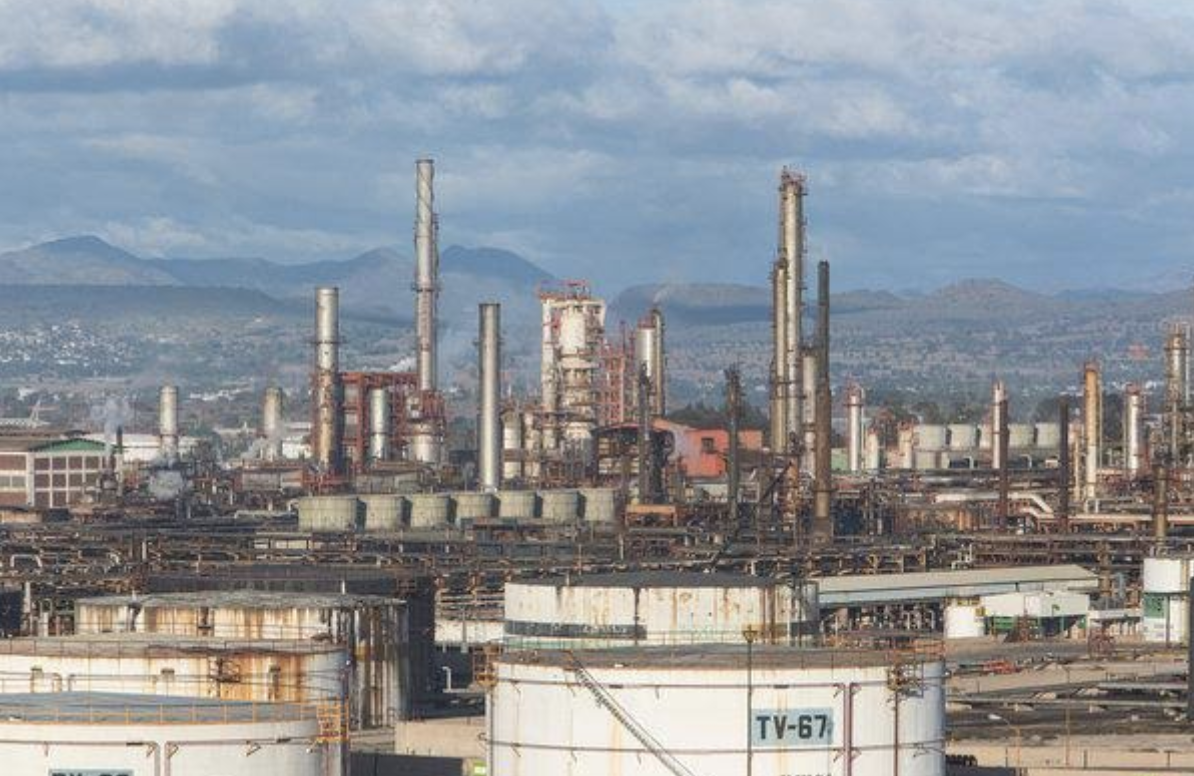Among his many campaign promises, Mexican president Andrés Manuel López Obrador gave his word that his government would oversee the construction of two new oil refineries. In his inaugural address, López Obrador lamented how “before neoliberalism we were self-sufficient in gasoline and gas, now we buy more than half of what we consume.” Little more than a week later, he declared that Mexico will produce all of the gasoline it consumes within three years. López Obrador’s penchant for Mexican self-sufficiency speaks to the fatal flaw of his rhetoric of change: its obsession with a purportedly idyllic past.
The case against the refineries is a strong one. While the López Obrador administration has predicted that they will each cost six billion dollars and take three years to build, outside experts put the estimates closer to 16 billion dollars and around five or six years to be completed. López Obrador is right about Mexico’s gasoline imports, especially from the United States, reaching unprecedented levels despite crude oil being continually exported the other way. But the matter of the fact is that this is far more cost effective than building new refineries from scratch.
This final point is precisely why self-sufficiency is generally an unrealistic, and unnecessary, goal. Mexico would have to expend significant resources that could be used elsewhere if it were to raise its refining capacity to meet the entire country’s demand for gasoline. There is no guarantee that López Obrador’s refineries would do enough to end the need for gasoline imports. But even if this were so, it would be worth asking whether their cost could be better spent elsewhere.
One area that comes to mind is renewable energy. López Obrador has said his administration will dedicate nearly one billion dollars to hydroelectric power, but he has hardly given another thought to renewable energy in his plans or in his rhetoric. What if the administration promoted clean and renewable energy sources with the resources it has said will go to the new refineries? While López Obrador has promised to comply with the carbon emissions reduction commitments of the Paris Agreement, the energy policy he has pursued thus far is expected to accomplish the exact opposite by increasing emissions. It seems unreasonable for the new government to pursue a near-impossible victory for the rhetoric of self-sufficiency at great economic and environmental cost when it could instead be promoting innovation in the field of renewable energy, yielding far more desirable results.
It is not too late for the administration to change course. Unfortunately, this seems unlikely. López Obrador has long insisted that Mexico lost its self-sufficiency during the so-called “neoliberal period” that he says began in the 1980s with a series of liberalizing economic reforms. To this end, he has advocated for a self-sufficient food supply since his second presidential run in 2012. He also vehemently opposed a constitutional amendment in 2013 that opened Mexico’s state-controlled oil industry to foreign and private investment for the first time since 1938.
This search for self-sufficiency is not a new phenomenon in Mexican politics. Interestingly enough, Carlos Salinas de Gortari, whose presidency from 1988 to 1993 launched the very “neoliberal period” that López Obrador maligns, also advocated for food supply self-sufficiency. And Mexico nationalized its oil industry to attain a self-sufficiency that proved unsustainable, with its state-owned oil company facing massive financial and technological setbacks.
López Obrador’s message of change promises to revive the many of the narratives and pursuits of Mexico’s past. But if his aim is truly transformation, he ought to focus on what Mexico might be rather than what Mexico supposedly was.

